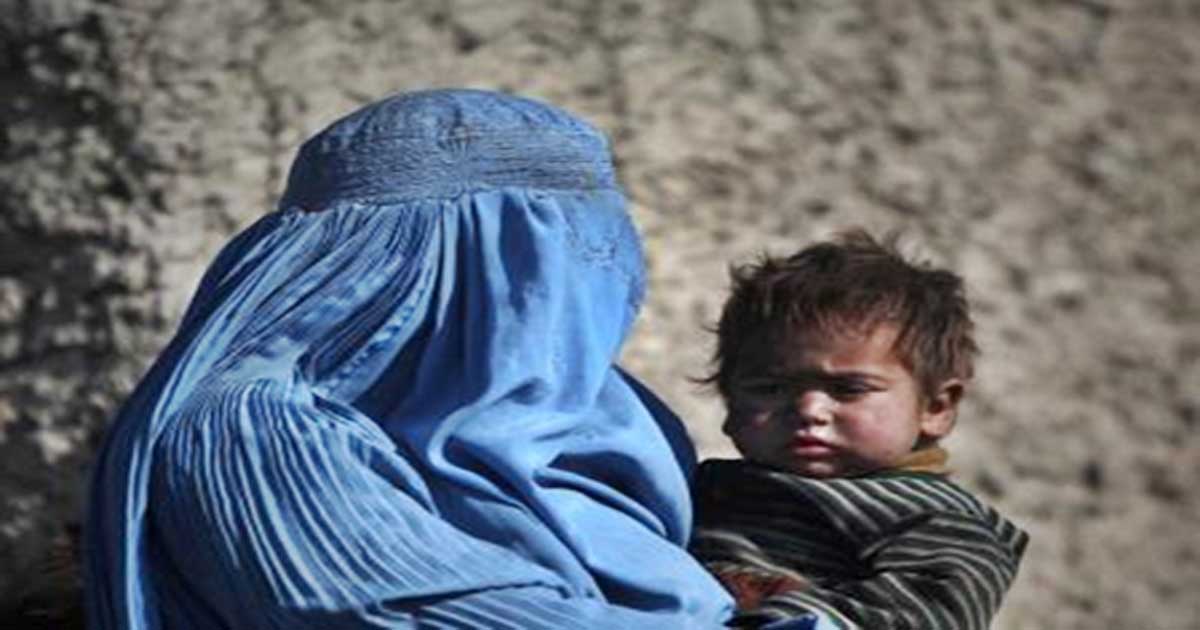Business
RBI vision for PPI growth by 150% will be big for Paytm
The increase in prepaid payment instruments transactions could lead to higher than expected growth in wallet transactions and revenue for Paytm, says a Goldman Sachs report
The Reserve Bank of India (RBI) on June 24 released its ‘Payments Vision 2025’ report, which talks about the way forward for the Indian digital payments industry. With this comes a big boost for digital payments, which will be a positive for listed players like Paytm.
The RBI expects more than 3x increase in digital payment transactions, increase in PPI (prepaid payment instruments) transactions by 150 per cent, increase of payment transaction turnover vis-a-vis GDP to 8, increase in debit card transactions at PoS by 20 per cent, card acceptance infrastructure to increase to 250 lakh, increase of registered customer base for mobile based transactions by 50 per cent CAGR and more.
This overall growth will be beneficial for Paytm as it has established itself beyond UPI, and created a full stack payment ecosystem. Paytm, which introduced India to digital wallets and the QR code, has a host of flexible payment instruments — Paytm Wallet, Paytm UPI, Paytm Postpaid (Buy Now, Pay Later), Debit Cards, Credit Cards, NetBanking, and EMI and is also a leader in the offline payments market with its devices like Smart PoS and Soundbox.
A Goldman Sachs report dated June 19 notes that this will translate to $98 billion in value of transactions in FY25 (wallet+ cards) vs $39 billion in FY22. Additionally, it is expected that full KYC wallets only will be on UPI rails, where Paytm is a market leader.
“We note that digital wallets formed 77 per cent of total PPI transaction value in FY22, a segment where Paytm has 67 per cent market share (April 2022). We estimate wallets made up roughly one-third of Paytm’s payments revenues in FY22, and a higher than expected growth in wallet transactions could positively impact the market leader Paytm,” said the report.
The RBI’s vision also states that there will be increased regulations for the fintech sector.
However, companies like Paytm being listed are already aware of regulatory measures and adhering to digital banking guidelines.
So, while it might be disruptive for industry but it might be immaterial for Paytm.
Business
World Bank flags rising poverty levels in Pakistan

New Delhi, Oct 8: The World Bank has expressed serious concern over Pakistan’s economy as the country has failed to reduce poverty despite massive loans injected by the IMF.
The current model of growth has failed to ameliorate the conditions of the poor, and the headcount ratio (HCR) has surged to its highest level of 25.3 per cent in the last eight years, which is a 7 per cent increase in HCR since 2023, the World Bank report states.
Instead of concentrating on rural development to reduce poverty, the Pakistan government has been focused more on increasing defence expenditure.
The World Bank report titled “Reclaiming Momentum Towards Prosperity: Pakistan’s Poverty, Equity and Resilience Assessment” released on September 23, mentions that even the country’s aspiring middle class (constituting 42.7 per cent of its population) is “struggling to achieve full economic security”.
Pakistan’s once-promising poverty reduction trajectory has come to a troubling halt, reversing years of hard-fought gains.
After dramatically reducing poverty from 64.3 per cent in 2001 to 21.9 per cent in 2018 — declining by 3 percentage points annually until 2015 before slowing to less than 1 percentage point per year — recent compounding shocks have pushed poverty rates back up to a projected 25.3 per cent by 2023-24, the report states.
The economic model that delivered early wins has reached its limits, with 14 per cent of the population in 2018 remaining vulnerable to falling back into poverty when faced with shocks.
Compounding crises — Covid-19, economic instability, devastating floods, and record-high inflation—have further exposed systemic weaknesses, leaving many in low-productivity activities and unable to cope with these challenges, the report points out.
Bold policy reforms are now essential to address structural imbalances, prevent sliding back into poverty during shocks, and tackle the persistent challenges in remote areas. In this context, this Poverty, Equity, and Resilience Assessment , the first since the early 2000s, looks at how poverty has evolved in Pakistan by combining traditional and non-traditional data, offering detailed analysis and strategic direction on the country’s efforts and challenges to reduce poverty and promote equity.
This comprehensive assessment aims to provide a roadmap for policymakers and stakeholders to address poverty and equity challenges in Pakistan effectively, the report added.
Business
Securing India’s cyberspace a shared responsibility: Centre

New Delhi, Oct 8: As cybersecurity incidents doubled in 2 years from 10.29 lakh in 2022 to 22.68 lakh in 2024, the Centre said on Wednesday that securing India’s cyberspace is a shared responsibility where the government and citizens must work together to combat cyber fraud.
Over 1,05,796 police officers are now registered on the CyTrain portal, with more than 82,704 certificates issued, equipping frontline personnel with essential cybercrime investigation skills, according to an official statement.
With financial support of Rs 132.93 crore from the Centre, cyber forensic-cum-training laboratories have trained over 24,600 personnel in cybercrime investigation, digital forensics, and preventive measures.
Further, as of March 2025, CERT-In facilitated 109 cybersecurity mock drills, engaging 1,438 organisations from different states and sectors to assess cyber readiness and build resilience, the government said
India’s digital expansion has connected over 86 per cent of households to the internet, increasing the risk of cyber fraud. Advanced forensics, big data analytics, and indigenous tools have bolstered national cyber resilience, the release said.
As India celebrates its rapid 5G rollout, with 1.2 billion mobile subscribers and 970 million internet users, the focus on secure, inclusive, and scalable digital ecosystems reinforces the country’s position as a global hub for trusted and transformative digital infrastructure, the release said.
The government cited evolving threats, including spoofing, phishing, and AI-driven deepfakes, where individuals are lured into revealing sensitive information through deceptive emails or messages, which are also on the rise.
As UPI was targeted using compromised mobile numbers, the Department of Telecommunications (DoT) launched the Financial Fraud Risk Indicator (FRI), which classified suspicious numbers as medium, high, or very high risk.
India’s legal framework includes the Information Technology Act and the Digital Personal Data Protection Act, along with operational platforms like CERT-In, NCIIPC, Samanvaya, and the Sahyog portal to combat the rise of cybersecurity threats, the release said.
Further, the National Cyber Crime Reporting Portal has been launched to enable citizens to report complaints relating to various categories of cybercrime, with a special focus on offences targeting women and children. A dedicated cybercrime helpline number, 1930, provides immediate assistance to victims of online financial fraud, the release noted.
Business
DGCA fines IndiGo Rs 20 lakh for lapses in pilot training

New Delhi, Oct 8: The Directorate General of Civil Aviation (DGCA) has imposed a fine of Rs 20 lakh on IndiGo for alleged lapses in pilot training at Category C aerodromes, airline’s parent company, InterGlobe Aviation, informed the stock exchanges on Wednesday.
According to the company’s filing, IndiGo received the communication from the aviation regulator on September 26.
The DGCA said the violation was related to the airline’s failure to use qualified simulators for pilot training, which is mandatory under aviation safety rules.
“Details of violation(s)/contravention(s) committed or alleged to be committed: Alleged failure to use qualified simulators for pilot training at Category C Aerodromes,” the company said in its filing.
In its response, IndiGo said it is contesting the DGCA order before the appellate authority.
The airline added that the penalty will not have any material impact on its finances, operations, or business activities.
“The Company is in the process of contesting this Order before the appropriate appellate authority,” the airline said.
“There is no material impact on financials, operations or other activities of the Company,” the airline added.
The company also explained the delay in disclosure, stating that it was unintentional and happened because of a lag in internal communication regarding the details of the order.
“The delay in disclosure was unintentional and was caused due to a delay in internal communication of details pertaining to the order,” the low-cost carrier mentioned.
The shares of IndiGo closed the intra-day trading session at Rs 5,630.50, down by Rs 33.50 or 0.59 per cent apiece on the National Stock Exchange (NSE).
Meanwhile, earlier this year, a Delhi-bound IndiGo aircraft carrying more than 150 passengers, including Samajwadi Party leader and Lok Sabha member Dimple Yadav, had aborted take-off at Lucknow airport after a technical issue was detected.
According to the official statement, the incident took place on IndiGo flight 6E2111, which was scheduled to depart from Lucknow to Delhi.
-

 Crime3 years ago
Crime3 years agoClass 10 student jumps to death in Jaipur
-

 Maharashtra1 year ago
Maharashtra1 year agoMumbai Local Train Update: Central Railway’s New Timetable Comes Into Effect; Check Full List Of Revised Timings & Stations
-

 Maharashtra12 months ago
Maharashtra12 months agoMumbai To Go Toll-Free Tonight! Maharashtra Govt Announces Complete Toll Waiver For Light Motor Vehicles At All 5 Entry Points Of City
-

 Maharashtra1 year ago
Maharashtra1 year agoFalse photo of Imtiaz Jaleel’s rally, exposing the fooling conspiracy
-

 National News12 months ago
National News12 months agoMinistry of Railways rolls out Special Drive 4.0 with focus on digitisation, cleanliness, inclusiveness and grievance redressal
-

 Maharashtra11 months ago
Maharashtra11 months agoMaharashtra Elections 2024: Mumbai Metro & BEST Services Extended Till Midnight On Voting Day
-

 National News1 year ago
National News1 year agoJ&K: 4 Jawans Killed, 28 Injured After Bus Carrying BSF Personnel For Poll Duty Falls Into Gorge In Budgam; Terrifying Visuals Surface
-

 Crime12 months ago
Crime12 months agoBaba Siddique Murder: Mumbai Police Unable To Get Lawrence Bishnoi Custody Due To Home Ministry Order, Says Report












